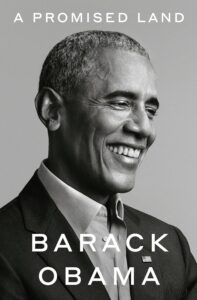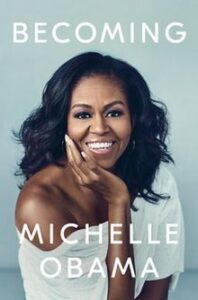About Us

Great Americans – Black History Profiles
Celebrate Black History in a Powerful Way!
Great Americans – Black History Profiles is a captivating video series featuring 28 vignettes highlighting the lives and accomplishments of 28 Great African Americans in history. Each Black History figure impacted American culture in unforgettable ways. Journey through time and rediscover how these Great Americans helped shaped the course of the country while leaving an indelible mark in the fabric of our history.
The series delves into the lives of Black History leaders, Black History heroes, and Black History figures from the 1700s through the 1960s, starting with Benjamin Banneker. Benjamin Banneker was born in 1736 and became an astronomer and mathematician that helped survey the Federal Territory that became the District of Columbia.
Born into slavery in 1797, Sojourner Truth became an abolitionist and member of the Underground Railroad who personally saved some 300 African Americans from slavery. She was also a speaker, and lecturer, and one of the leaders of the women’s movement.
Black History is American History and many of the historical accomplishments of African American’s are not well known, and in some cases, missing from history books. These Black History capsules bring the accomplishments of leaders like Mary McLeod Bethune, Carter G. Woodson, Paul Robeson, and Fannie Lou Hamer front and center.
There are 28 videos in the Great Americans – Black History Profiles series to pay homage to Black History Month, one video for each day of the Month. Each video is one minute long and designed for broadcast bumpers, program transitions, or promos.
Celebrate Black History in a powerful way, during Black History Month or all year long, with the uplifting and dynamic video series, Great Americans – Black History Profiles.

Great Americans – Black History Profiles List
- BENJAMIN BANNEKER, (1736 -1806) Astronomer and mathematician helped survey the Federal Territory that became the District of Columbia and published annual almanacs.
- SOJOURNER TRUTH, (1797 -1883) Abolitionist, orator, and one of the leaders of the women’s movement. She was a speaker and lecturer who fought for the rights of African Americans.
- FREDERICK DOUGLASS, (1817 -1895) Abolitionist, author, and major African American leader, later known as “The Father of the Civil Rights Movement.”
- HARRIET TUBMAN, (1820 -1913) African American abolitionist, humanitarian, Union scout, and spy who made trips into the South to rescue over 300 slaves.
- BOOKER T. WASHINGTON, (1856 -1915) College president and national leader who emphasized education, hard work, and economic development.
- DANIEL HALE WILLIAMS, (1856 -1931) Surgeon who performed the first successful heart surgery at Chicago Provident Hospital in 1893.
- MARY CHURCH TERRELL, (1863 -1954) Civil rights leader, co-founder of the NAACP, and first president of the National Association of Colored Women.
- GEORGE WASHINGTON CARVER, (1864 -1943) American scientist, botanist, inventor, and agricultural researcher who developed hundreds of products from the peanut and sweet potato.
- MADAME C.J. WALKER, (1867 -1919) Businesswoman and one of the first self-made female millionaires in America. She made a fortune developing products for African American hair.
- W.E.B Du BOIS, (1868 -1963) Civil rights leader, scholar, co-founder of the NAACP, and the chief organizer of the First Pan-African Congress of 1919.
- MARY MCLEOD BETHUNE, (1875 -1955) College president, civil rights leader, an adviser to presidents, and member of President Roosevelt’s Black Cabinet.
- CARTER G. WOODSON, (1875 -1950) Called “The Father of Black History,” Woodson organized the first African American History Week and founded the Association for the Study of Afro-American Life and History.
- JACK JOHNSON, (1878 -1946) First African American heavyweight champion who won the title in 1908 and became an international athletic figure.
- PAUL ROBESON, (1898 -1976) Singer, actor and civil rights activist who presented a powerful stage image and became an international stage and screen performer.
- EDWARD KENNEDY ELLINGTON, (1899 -1974) Pianist, bandleader, and prolific jazz composer also known as “The Greatest American Composer.”
- LOUIS ARMSTRONG, (1900 -1971) Bandleader, entertainer, and the first African American jazz soloist to achieve worldwide fame in jazz music.
- LANGSTON HUGHES, (1902 -1967) Poet, playwright, and author who was called the “Poet Laureate of Black America.”
- CHARLES R. DREW, (1904 -1950) Surgeon who pioneered the development of blood plasma preservation, blood storage, and blood banks.
- RALPH J. BUNCHE, (1904 -1971) Political scientist and the first African American to win a Nobel Prize in 1950 for negotiating an end to an Arab-Israeli conflict.
- ADAM CLAYTON POWELL, JR. (1908 -1972) Politician, minister, and the first elected African American Congressman of New York.
- THURGOOD MARSHALL, (1908 -1993) Judge, jurist, and first African American to serve on the U.S. Supreme Court.
- JESSE OWENS, (1913 -1980) Track star who won four gold medals at the 1936 Olympics and became an international symbol of Olympic excellence.
- ROSA PARKS, (1913 -2005) Arrested on December 1, 1955, when she refused to give up her seat on a bus. She became known as the First Lady of the Civil Rights Movement and called “The Mother of the Freedom Movement.”
- FANNIE LOU HAMER, (1917 -1977) From the life of a sharecropper to civil rights leader and voting rights activist who played a major role in the Freedom Movement and the Freedom Democratic Party.
- JACKIE ROBINSON, (1919 -1972) Baseball star who broke the color barrier when he joined the Brooklyn Dodgers in 1947 and became the first African American to play in the Major League Baseball.
- JAMES BALDWIN, (1924 -1987) Novelist, playwright, poet, and civil rights activist who helped define the Freedom Movement of the1960’s.
- MALCOLM X, (1925 -1965) Controversial Muslim leader and human rights activist for African Americans rights.
- MARTIN LUTHER KING, JR., (1929 -1968) Civil rights leader and minister who led the Civil Rights Movement with a non-violent approach to social change.
Credits: Editor: Stacy T. Holmes, ACE, Narrator: Steve Schy, Music: PartnersinRhyme.com, Digital Collection: Library of Congress, Copyright: CBN Communications










